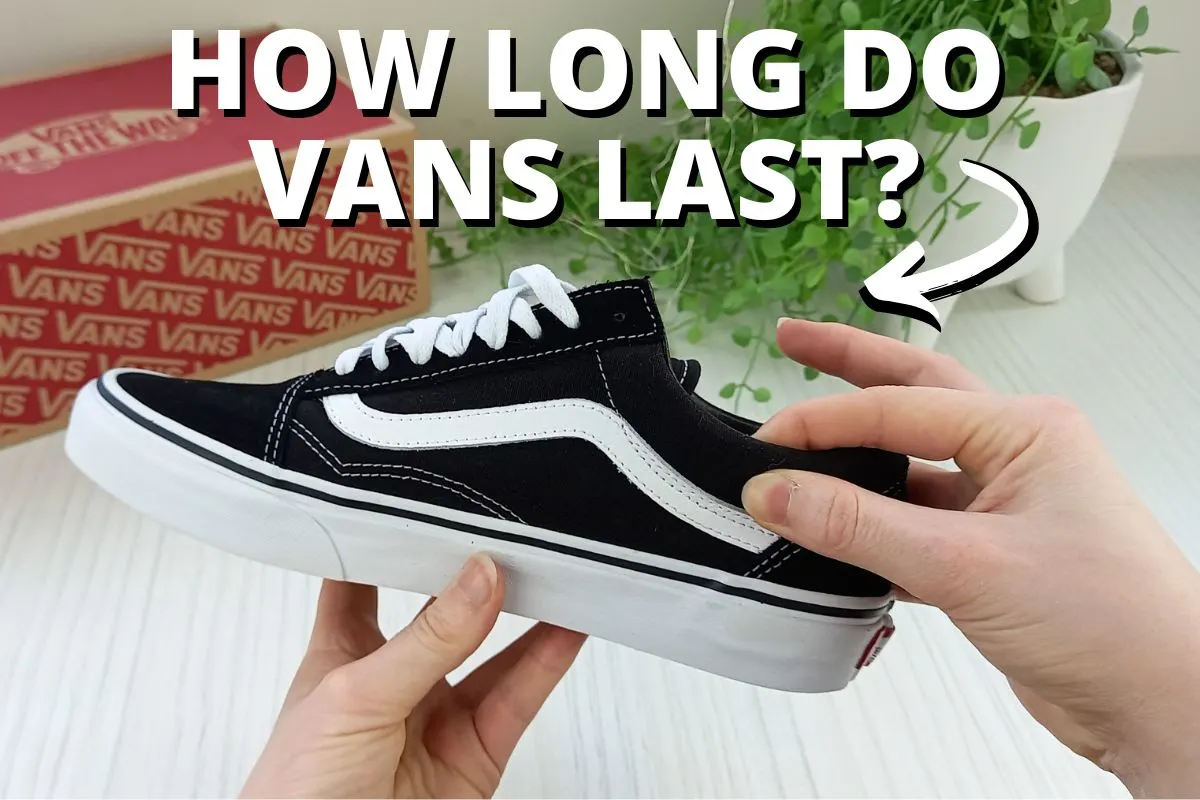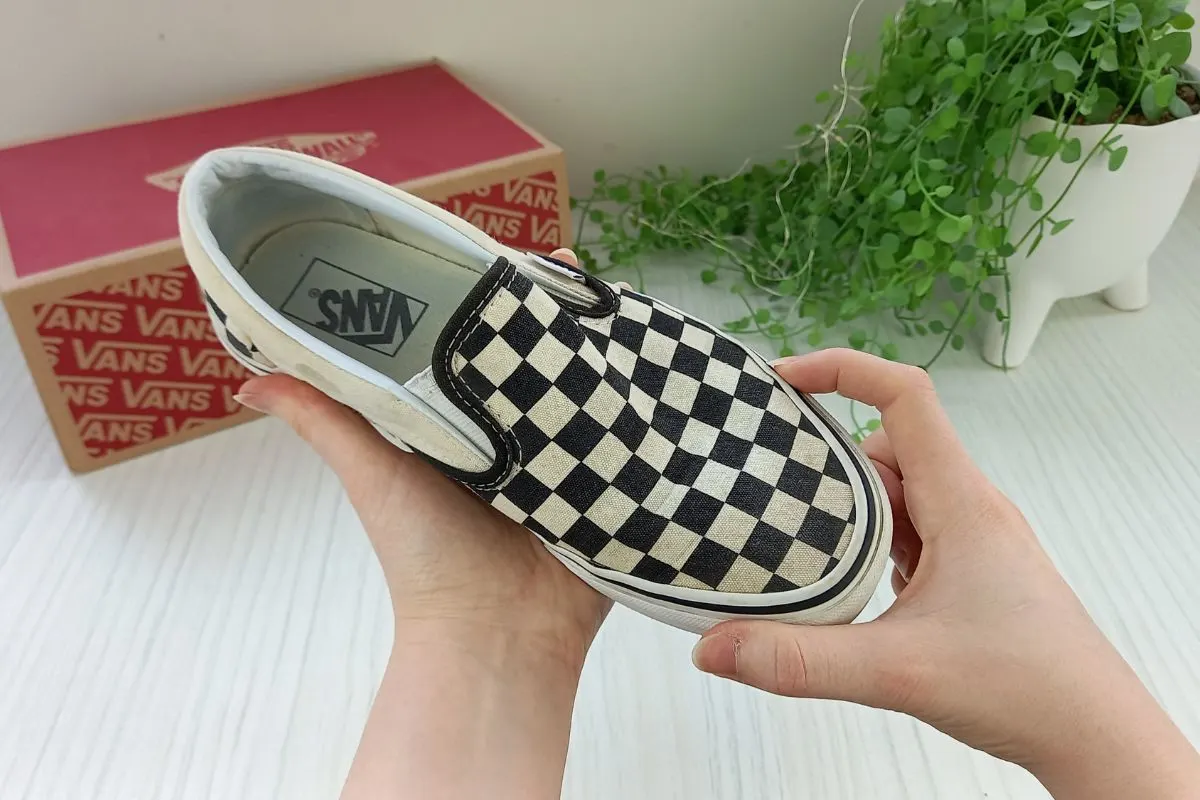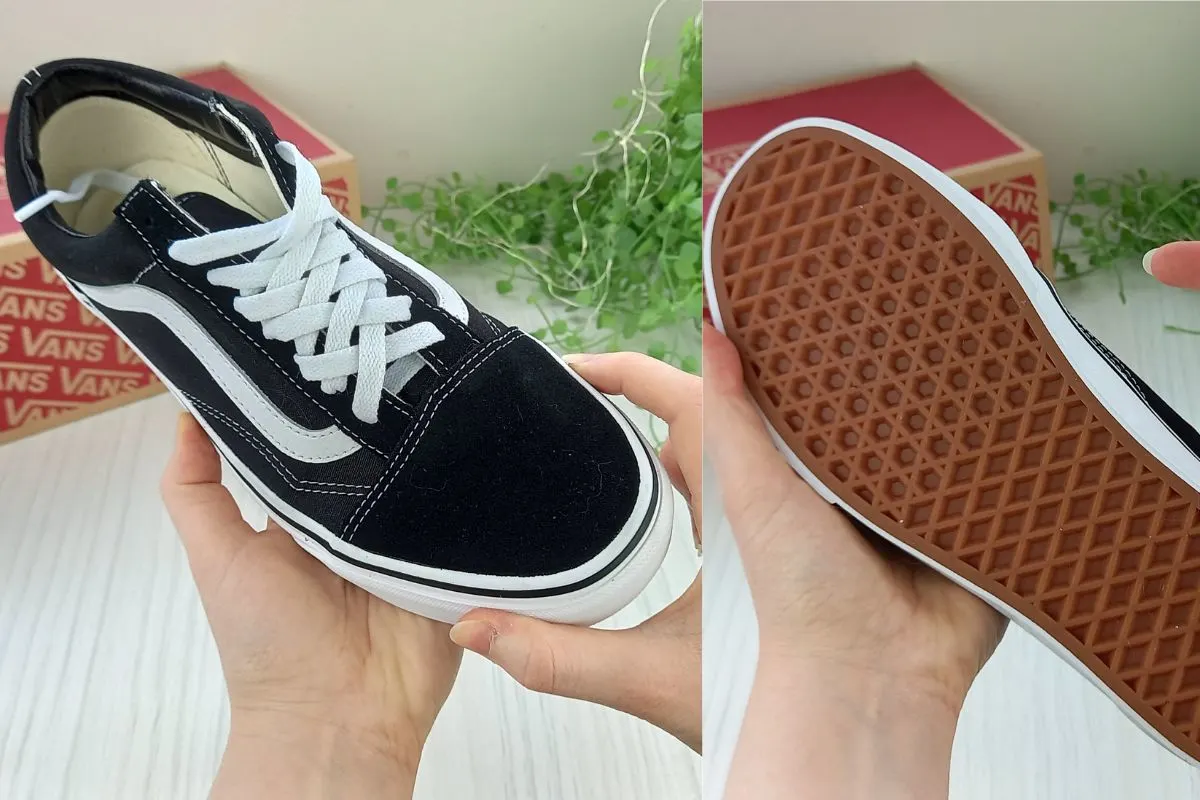The primary concern with the longevity of Vans is that buyers sometimes apply different pressure or force on a similar pair of shoes. Popular as skateboarding shoes, Vans are created to endure the wear and tear caused by excessive everyday use, but even then, they can only withstand so much.

Some everyday skaters claim that Vans only last around 8-10 weeks after excessive training, but can be prolonged to between 6 and 12 months if they aren’t exposed to constant friction and scraping. Casual users find Vans can last 2 years or more if strolling in malls and suburban areas.
In my personal experience as a long term customer and fan of the Vans brand, I find they last me more than 2 years. The waffle style sole is hardy enough for my level of use, as I don’t skate, I just wear them casually. Some pairs have even lasted me up to 5 years.
If you are looking at getting your own pair, visit Vans.com to check out the current prices. Or visit the official Vans Amazon store here to see if they’re currently offering a better price.

There is a considerable time difference between two months and two years, so what can we do to get the most out of our vans, regardless of our routines and usage? Moreover, what kind of vans are stronger, and how do they compare to the competitors’ products?
*This page may contain affiliate links. As an Amazon Associate I earn from qualifying purchases at no additional cost to you. Learn More.
What Type Of Vans Last The Longest?
Some Vans were specially designed to withstand the punches the skate park or BMX track would throw at them. For example, the Vans Sk8-Hi, Skate Half Cub, & Gradient BMX Old Skool shoes are among the stronger type of Vans, but they never last as long as the more casual shoes, like the classic slip-on because sportsmen and women constantly force them to the edge.
However, if you use the more robust designs for casual purposes, you’ll find that they will last longer than classic shoes. Still, there is a general price increase as it’s a more excessive shoe for generally strolling around.
You may also like: Fake Vans vs Real Vans: 15 Ways To Spot Fake Vans (Photos)
Nevertheless, most of the more robust Vans have extra padding at the tongue of the shoe and the heel making them more durable. Unfortunately, years of developing Vans for sportsmen and women have yielded that a shoe that is too thick makes riding a skateboard or BMX uncomfortable as it reduces the natural feel between the foot and the gear.
As a result, Vans can’t be too padded or robust as it reduces their effectiveness concerning their ultimate purpose. Even the best shoes won’t last longer than a year after constant sporting use, but they can easily last around two years for general use.
But, if it’s an effective sporting Vans you’re looking for that provides optimum performance with longevity and style, the following are among the most proficient:
- Vans Atwood Skate
- Chukka Midtop Ankle-high Sneakers
- Sk8-Hi Classics
- MTE – (1-3)
- Pro Styles
- Gilbert Crocket Pro
Check out these designs on Vans.com.
Many sports stars agree that the Vans Gilbert Crocket Pro lasts, on average, a month longer than some of the other Vans when exposed to constant wear and tear, but all of the above-mentioned shoes will automatically last longer when used generally.
What Materials Make The Vans Last Longer?
Although your shoe lifespan will mostly depend on what you do and how often you do it, there are a few aspects you can keep an eye out for that will increase the longevity of the product:
- Suede is stronger than canvas, and although you don’t necessarily need the shoe to consist of suede solely, it needs to be present in the areas where it matters most, like the heels and side where it tends to have constant friction.
- Double stitching enforces the bond between the materials and can also withstand more bumps and bruises.
- High quality rubber soles have excellent durability.
- Padding at the tongue and heel will not only provide more comfort, but it takes longer to wear through the material
- Besides the quality of the shoe laces, having metal eyelids also decreases the chances of it breaking due to pressure.

How Do Vans Compare To Other Brands Regarding Longevity?
When comparing Vans to other popular brands, you will find little difference in the amount of time you gain from them. Although Vans might be more expensive than others due to popular demand, most competitors use the same materials with a proper development structure resulting in similar quality.
Hence, if you are evaluating which shoe to buy, most shoes in the same competitor’s class will last approximately a year after daily use, regardless of the brand.
That being said, style and comfort are important factors to consider, and it’s essential to look out for the key materials at the right places that ensure durability, for example, at the upper and the heel.
Most importantly, try to find a Vans-size shoe that comfortably fits you, as even the slightest space between your feet and the shoes will cause friction eating away at the interior over time.
It’s worth noting that most runners don’t calculate a shoe’s longevity on time but rather the miles. If you follow a proper routine of keeping the shoes dry and clean, you’ll gain a similar distance from brands in the same competitors’ class when evaluating the miles and usage rather than time.
What Can I Do To Make My Vans Last Longer?
Depending on the material and development process of the shoe, most Vans are of excellent quality and are known for their durability concerning the respective sports. Although Vans never last forever and are susceptible to wear and tear, you can follow a few steps to get the most out of them.
The following are a few guidelines to help increase the longevity of your vans:
- Any wetness will cause irreparable damage; prevention is better than cure. Ensure that you seal the primary materials every few months and more often during the winter, to avoid any wetness weakening the fabric.
- Another advanced step to take to avoid dampness is a shoe tree. Shoe trees not only aid in maintaining the shoe’s shape but also absorb moisture, preventing odors and general decay.
- Most owners recommend hanging your shoes in a cool, dry place instead of just placing them on the floor or the bottom of a cupboard. Lifting the shoe from the sole when not using it helps with the general drying process.
- Regularly cleaning your shoes is a necessity if you want your shoes to last longer. Dirt becomes hard over time and slowly breaks down the material causing damage. Ensure that you regularly clean the shoes but avoid dampening them unnecessarily.
- Gluing is a popular method used by sportsmen and women who practice and compete intensely. Although it is not an attractive option for casual users, gluing the double stitching and enforcing the main areas that often tear first, like the midsole or the areas near the vamp, will increase longevity.
- Finally, many shoe owners recommend rotating your shoes and avoiding wearing them consecutively. Of course, buying two pairs of identical shoes is only possible for some, but allowing the shoes to breathe for a day after use and exposing them to the sun for drying will allow you to gain more time from them.
Conclusion
Judging how long Vans will last mostly depends on their usage. Ultimately, it’s not about how long it can last in general but how long you can use them for your habits and routines. People who participate in a lot of sporty activities have, on average, less than a year’s worth of usage. Still, casual users can easily go beyond two years if they take the necessary precautions.
For more Vans content, check out:
Where Are Vans Made? 2022 Guide & FAQs
Why Are Vans So Popular? 2022 Style Report
Are Vans Good For Wide Feet? (Size Guide FAQs)
Are Vans Waterproof? ULTIMATE FAQ Guide
Fake Vans vs Real Vans: 15 Ways To Spot Fake Vans (Photos)
Are Vans Non Slip? A Test on 4 Surfaces (FAQ Guide)

Lorna is a footwear geek and the founder of Wearably Weird. She created a YouTube channel in 2021 for fellow footwear fanatics, dedicated to detail-rich footwear reviews and info. She has a fashion media qualification (awarded in 2011).
